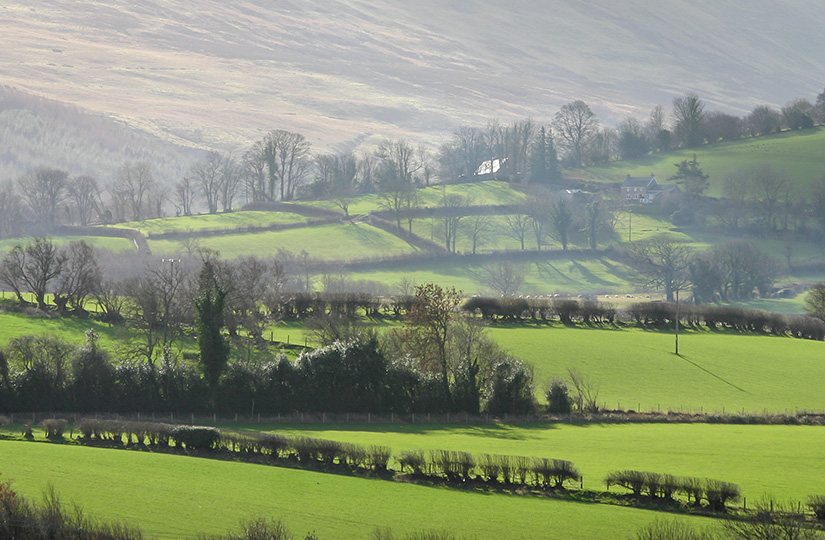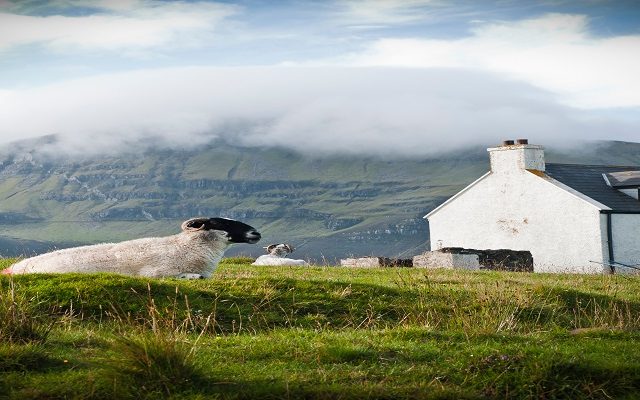Land Business Update | Week Commencing 14th February
Welcome to our update on key land management, farming, planning and energy issues.
FARMING
Lump sum exit scheme to open in April – but its only open for six months
Defra has, three months later than planned, published details of the lump sum exit scheme. They are largely the same as the details consulted upon.
The key points are:
- The lump sum will be 2.35 times the average Basic Payment Scheme (BPS) payment received in 2019 to 2021, up to a maximum payment cap of £100,000; therefore anyone with an average BPS claim of less than £42,500 a year (or @ 180 hectares) will not be affected by the cap.
- An applicant must sell or rent out or plant their land with trees (apart from a maximum of 5 hectares) before they receive their lump sum. They must also surrender their English BPS entitlements.
- An applicant who is in a partnership can apply for a lump sum if they have 50% or more interest in the profits of the partnership; they can transfer the land to the remaining members of the business.
- Thought will need to be given to commitments made under existing schemes – such as the Farming Investment Fund or agri-environment schemes, although agreements can be transferred to the person taking on the land.
- The lump sum will be treated as capital, so subject to capital gains or corporation tax, rather than income tax; this makes the scheme more attractive as capital gains reliefs will be available where the qualifying criteria are met.
- A land manager who decides to take the lump sum will still be able to work as a contractor or work for other farmers if they wish.
- Land managers should apply for BPS in 2022, even if they intend to apply for the lump sum scheme.
If you are considering retirement and succession issues, we can help you navigate your way through the process. Contact Head of Farming Jonathan Armitage.
Countryside Stewardship 2022 application window now open
Applications for the Countryside Stewardship Scheme (CSS) opened on 8th February, with the key changes below:
- This year, capital grants can be applied for all year round, although the Rural Payments Agency have warned that they may close the application window if they are inundated with requests.
- A new standalone capital grant, the CS Protection and Infrastructure (CSPI) capital grant, has been introduced to support the creation of Woodland Infrastructure (FY2).
- Anyone who has a SFI pilot scheme agreement can apply for a CS Capital Grants (SFI Pilot) agreement, to help them with the delivery of the SFI pilot standards.
- Payments for organic options have increased by at least 50%. The Soil Association welcomed those changes, as although the organic market reached a record net worth of £3bn in 2019, the proportion of land managed organically only grew by 0.8% from 2019 to 2020. The Soil Association hopes that the higher payment rates will incentivise farmers to convert to organic.
If you are interested in applying or would like to know how a scheme could suit your land, contact your local farm consultant or our Head of Farming Jonathan Armitage.
Genetic engineering of plants – regulation change for research opportunities
The government is expected to introduce new legislation which would relax the rules for the genetic engineering (GE) of plants. It would, for now, only apply to research opportunities to create more nutritious and resilient plant varieties, at a quicker pace than through traditional breeding processes. GE potential benefits include helping towards the reduction of pesticide and herbicide use, and so reducing pollution and impacts on pollinators. GE could for instance be used to tackle the Yellows Virus in sugar beet, which can cause yield losses of up to 50%. A variety resistant to the virus would decrease the use of pesticide to protect the crops as well as minimise profit losses for farmers, benefiting both the environment and farming businesses profitability.
ENVIRONMENT
Landscape Recovery pilot launched in England
The first application window for the Landscape Recovery Scheme pilot is now open until 24th May 2022, with £7.5m available to support up to 15 projects in this first round. The aim of the scheme is to deliver substantial changes to land use and habitats, over the long-term and on a large scale (500ha to 5,000ha). It is therefore different to the current Countryside Stewardship scheme, which will be progressively replaced by the Local Nature Recovery Scheme from 2023 onwards. This first round has two themes – native species recovery and river restoration – and future rounds will have different themes. If you would like to know more about how the full scheme will work when launched in 2024, please read our blog ‘A quick guide to Defra’s Landscape Recovery Scheme’ or contact our farming team.
FORESTRY
Forestry and Land Scotland has found out that 80% of Scots want the Highlands reforested
A survey undertaken by Forestry and Land Scotland (FLS), involving over 1,000 participants, has found out that 80% think that the Highlands should be reforested and 78% agree that more could be done to support the biodiversity in the area. Moreover, more than 90% said that they support forestry as a nature-based solution to mitigate climate change and for Scotland to become more self-sufficient in timber production. FLS manages between 40-50% of the 350,000 hectares of forestry in the Highlands, producing 500,000 tonnes of timber annually. The agency has been allocated £30 million by the Scottish Government to buy more land to increase the numbers of publicly owned forests and woodlands, with an overall target of increasing tree planting by 20% by 2024/25.
PROPERTY AND RURAL ECONOMY
Telecoms case concerning the Pippingford Estate provides more case law on lease renewals
A recent County Court decision has provided more guidance on how the terms from a previous lease should be taken into account when agreeing a new lease, approach to assessment of rent payable and relevance of incentives in comparable evidence. The case concerned the renewal of a Landlord and Tenant Act 1954 telecoms mast lease, with the term having expired and being held over since 2014. This is a complicated area as it involves the interaction of the Electronic Communications Code and the Landlord and Tenant Act 1954. The Court decided that many of the terms in the previous lease should be carried over to the new one, following what is known as the O’May principle, and also on how lease terms that were not clear in the previous agreement should be dealt with, including rights to upgrade apparatus and management of access to the site. It also dealt with how premiums are to be treated when assessing comparable transactions. Please contact James Hill (England and Wales) or Larry Irwin (Scotland) if you would like to discuss the case, with which Strutt & Parker was directly involved.
Scottish Land Commission advice to the Scottish Government on tax and land reform
In 2020 the Commission was asked by the Scottish Government to provide advice on how land can be used to help the economic recovery from the pandemic and support greater diversity of land ownership. The Commission has reported and made a number of recommendations:
- Having better information on landownership, value and use will give the Scottish Government better information on which to make policy decisions, so a ‘one-stop shop’ cadastral map, showing legal titles, is recommended. This includes information on new markets, such as carbon and natural capital.
- To bring vacant and derelict sites back into productive uses, it is recommended that new reliefs on business and council tax could be introduced (and new charges imposed on vacant sites).
- Explore the potential for an income tax relief to support the letting of agricultural land.
- Bodies such as Citizens’ Assemblies should be used to gather information and build consensus on the options for taxing land values. The Commission does not recommend (immediately) introducing a universal land value tax as, although there are some strong theoretical benefits, it is complicated to implement.
Smoke alarms and electrical safety standards for dwellings in Wales
New rules are to come into force in Wales on 15th July 2022, with the implementation of the Renting Homes (Wales) Act 2016. They will apply to existing Assured Shorthold Tenancies and to new ones with a fixed term of less than seven years. The key changes are as follows:
- Mains-wired smoke alarms will be required on each floor of a dwelling and they should be connected to all other smoke alarms in the property.
- Carbon monoxide detectors should be fitted in each room that contains a gas, oil-fired or solid fuel combustion appliance.
- All electrical installations should be inspected by a qualified person to ensure they meet “electrical safety standards”. If some works are required to meet these standards, the property should not be rented out until they are done.
Strutt & Parker’s advice: get properties up-to-date with the new legislation now, as there is always a rush leading to supply chain issues when approaching a deadline.






